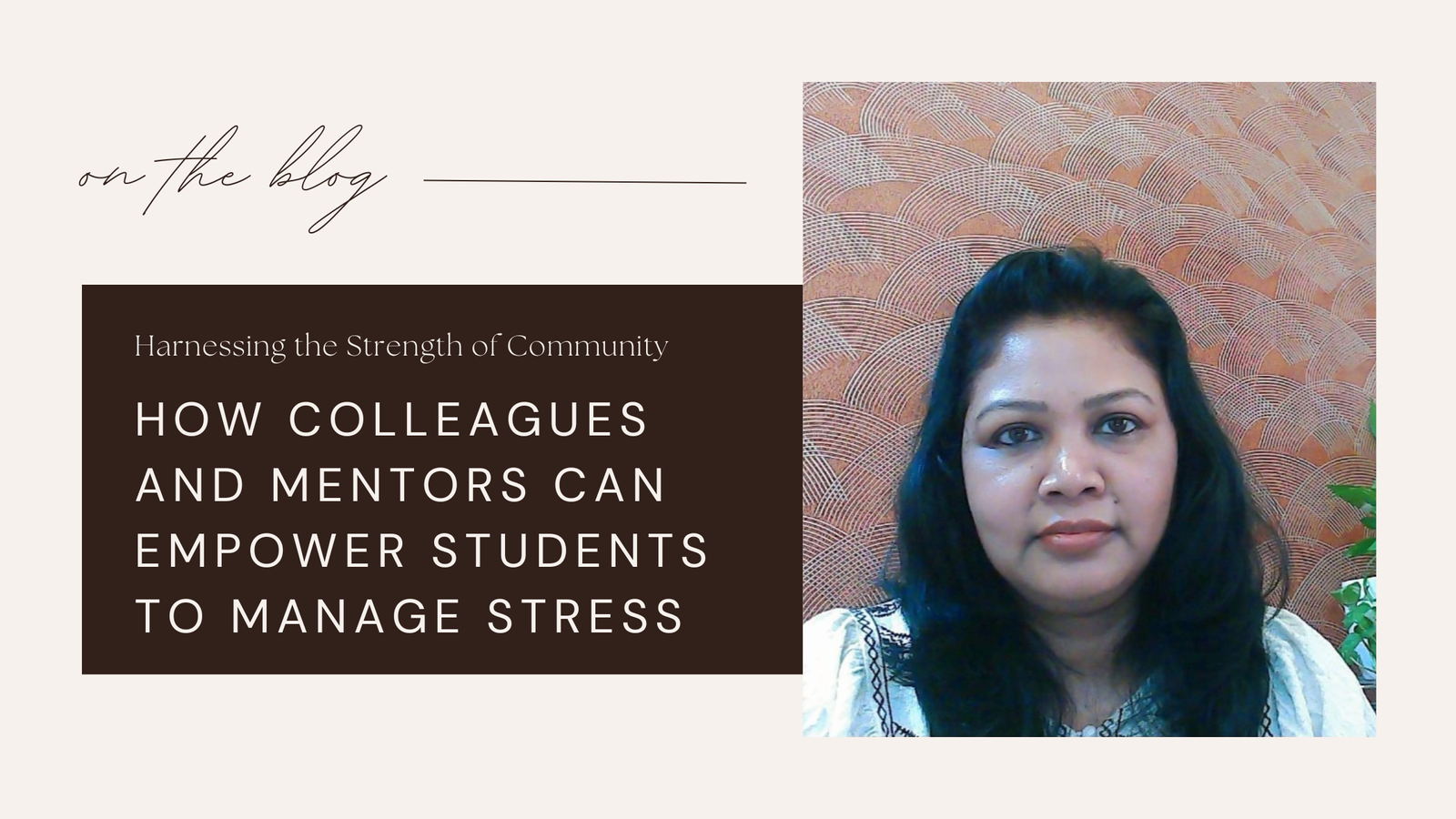Introduction
In the fast-paced world of academia, stress is a common companion for school-going students. From looming deadlines to challenging exams, the pressures of academic life can sometimes feel overwhelming. However, amidst the chaos, there exists a powerful resource that often goes untapped, the support of colleagues and mentors.
In this write-up, we will delve into the depths of stress among students, the importance of seeking support, and how building meaningful relationships with colleagues and mentors can pave the way for success.
Before we delve deep let us understand Stress medically, so what is stress?
According to WHO – ‘Stress can be defined as a state of worry or mental tension caused by a difficult situation. Stress is a natural human response that prompts us to address challenges and threats in our lives. Everyone experiences stress to some degree. The way we respond to stress, however, makes a big difference to our overall well-being.’
The signs of stress are
- Stress makes it tough for us to unwind and can bring a whirlwind of emotions, such as anxiety and irritability.
- When we are stressed, focusing becomes a challenge. It is like trying to gather scattered puzzle pieces in our mind.
- Physical symptoms often accompany stress. We might experience headaches or other bodily discomforts, like an upset stomach or trouble sleeping.
- Stress can mess with our appetite. We may lose interest in food or end up munching more than usual, seeking comfort in snacks.
- Chronic stress can make existing health issues worse. It’s like adding fuel to the fire, making it harder for our bodies to cope.
- Stressful situations can also trigger or worsen mental health conditions, like anxiety and depression. These conditions require proper medical attention.
- When our mental health suffers, it is often because stress has become a constant companion, affecting every aspect of our lives, including work or school. It’s like a dark cloud that follows us around, making everything seem more challenging than it should be.
Understanding Stress Among Students:
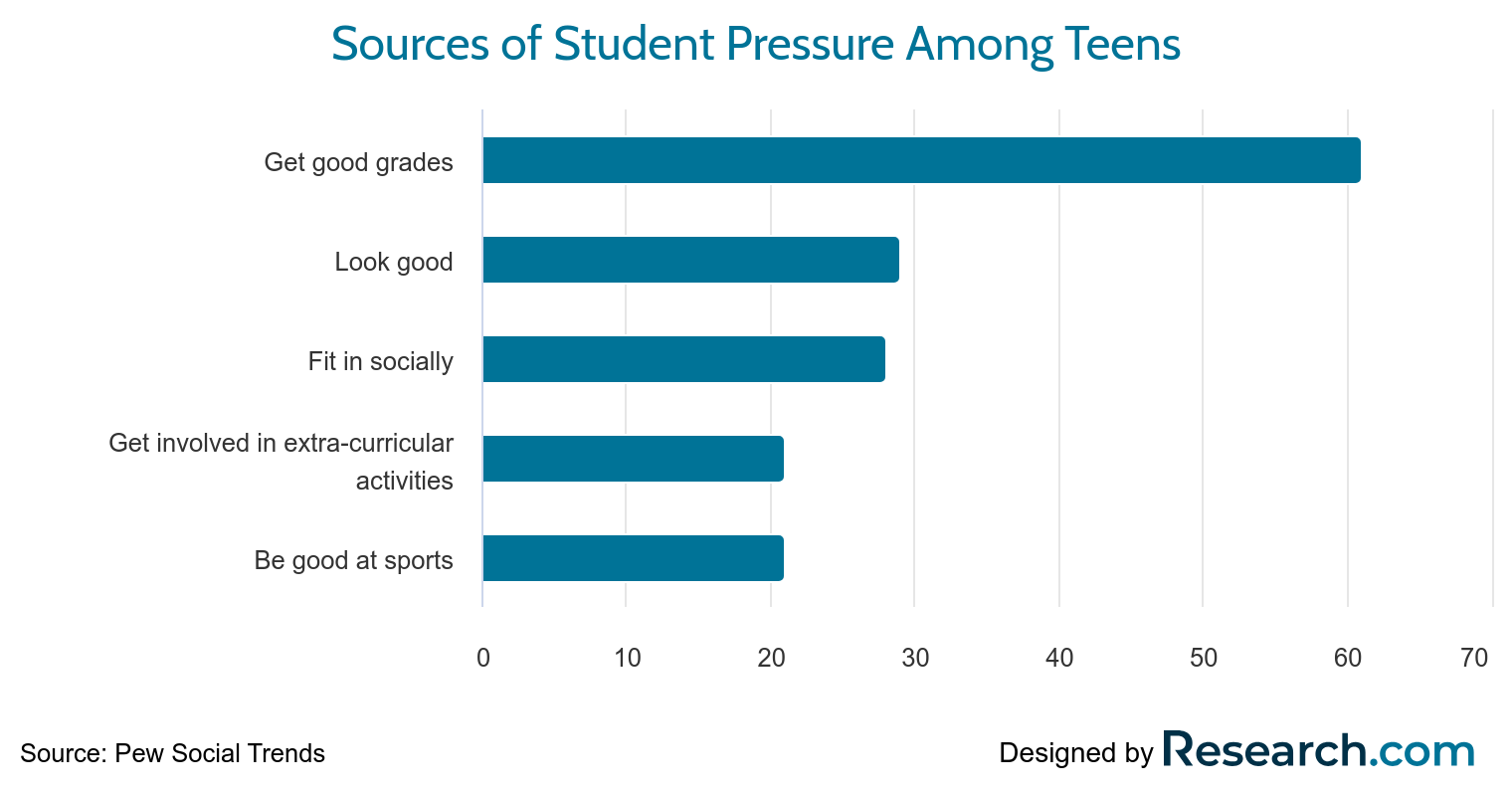 Stress among students is not a new phenomenon. In fact, it is an inherent part of the academic journey. Consider the story of Maya, a high school senior struggling to balance her coursework, extracurricular activities, and familial responsibilities. With college applications looming on the horizon, Maya finds herself engulfed in a whirlwind of stress and anxiety. Like many students, Maya’s stress is compounded by the pressure to excel academically and secure a bright future.
Stress among students is not a new phenomenon. In fact, it is an inherent part of the academic journey. Consider the story of Maya, a high school senior struggling to balance her coursework, extracurricular activities, and familial responsibilities. With college applications looming on the horizon, Maya finds herself engulfed in a whirlwind of stress and anxiety. Like many students, Maya’s stress is compounded by the pressure to excel academically and secure a bright future.
Some statistics of high school student’s in stress 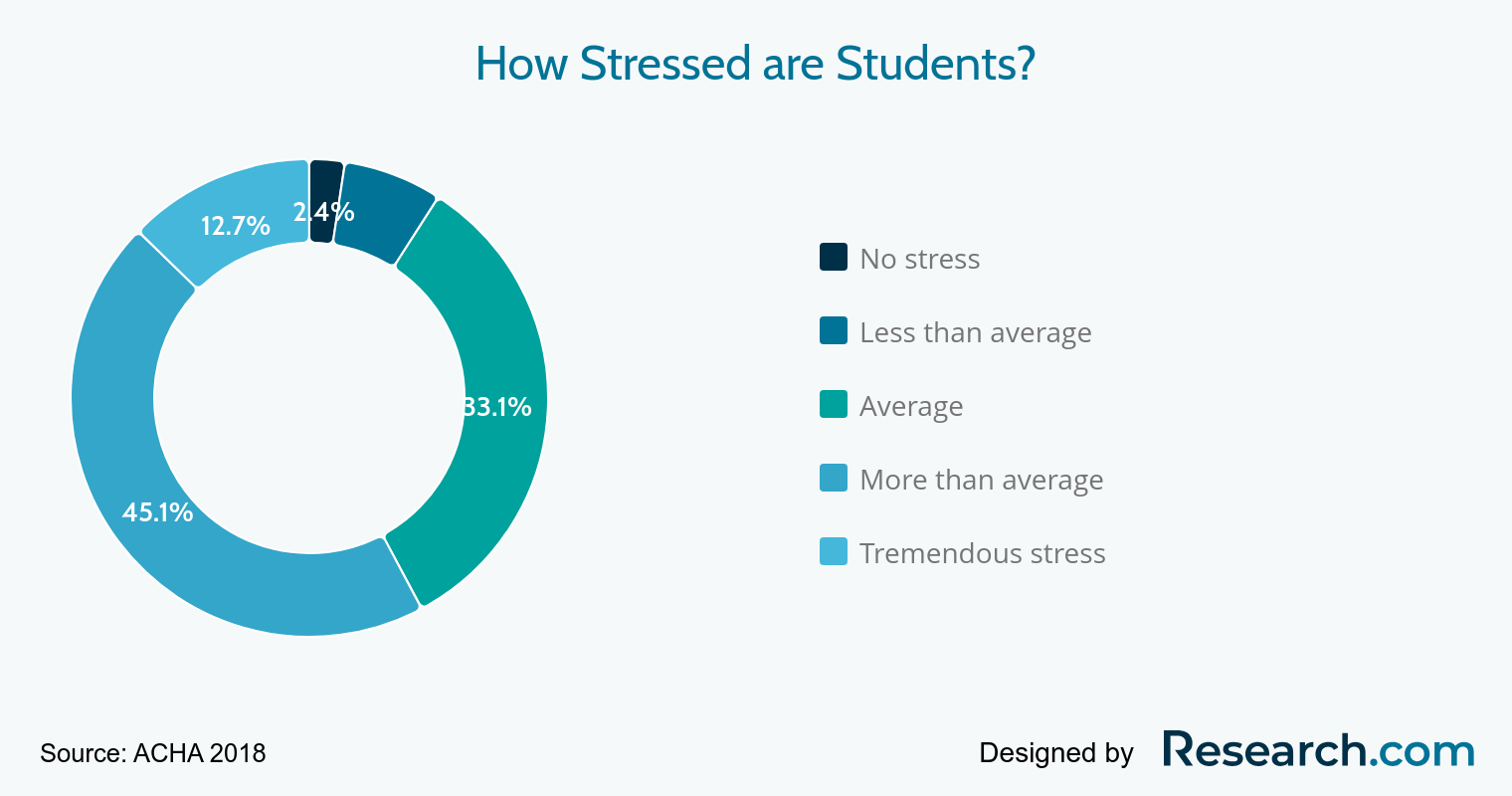
- Seven out of ten teens in the U.S. (between 13 and 17 years old) have named anxiety or depression as a major problem among their peers in the community.
- 75% of U.S. high school students expressed boredom, anger, sadness, fear, or stress while in school.
- On a 10-point scale, where normal values for adults are 3.8, American teens rated their stress rate at an average score of 5.8.
- In other academic pressure statistics, it was found out that three-quarters (75%) of American high schoolers and half of the middle schoolers described themselves as “often or always feeling stressed” by schoolwork.
An analytical approach to understand stress management could solve stress issues during school examinations. Self-care, mindfulness, relaxation, a realistic study schedule, effective study strategies, peer and mentor support, a positive mindset, time management, balance, and hobbies are key. One can manage stress during this difficult time by implementing these ideas into their everyday routine. Refer to my blog:
Conquer it! Analytical Approach to Stress Management for Class 10 & 12 Board Aspirants
Some stress among college and university student’s statistics 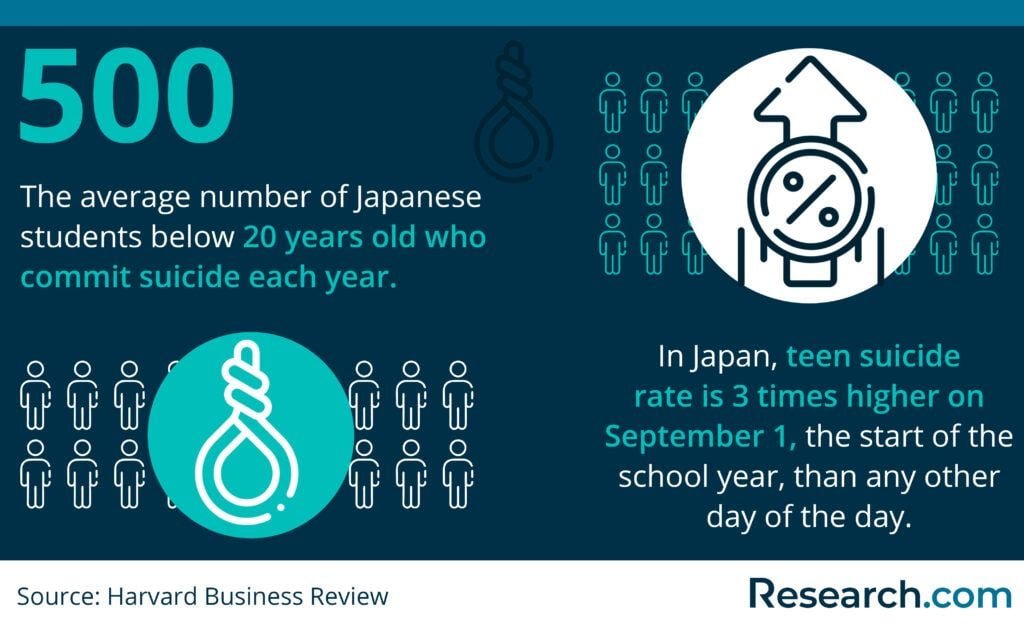
- 40% of college students in the U.S. admit to feeling inadequately rested five out of seven days a week.
- One in four American college students indicates that lack of sleep has affected their academic performance in a negative way: lower grades, missed a paper or project deadline, or having to withdraw from the class.
- U.S. students who sleep six or fewer hours a night have a lower Grade Point Average (GPA) than those who get eight or more.
- 40% of American college students take naps, but nappers tend to sleep less in total than non-nappers.
- 45% of American college students claimed to undergo “more than average stress,” while 33% of students reported “average stress” and 12.7% saying it is “tremendous stress.” Students who reported “no stress” or “less than average stress” combined for 9% total.
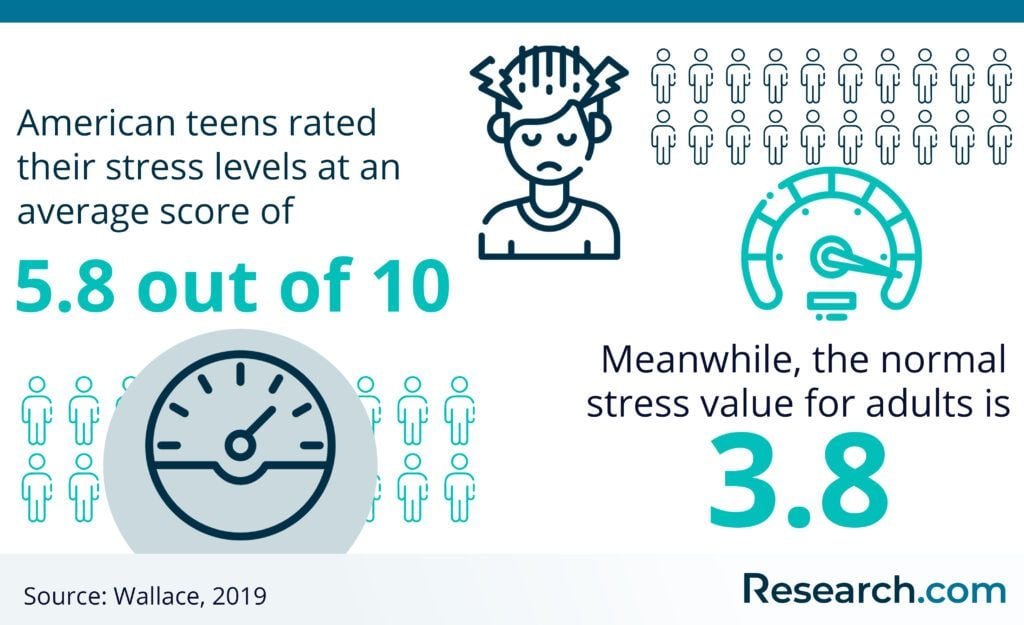
- 8 out of 10 university students in the U.K. reported stress and/or anxiety in school.
- 45% of United Kingdom students reported feeling stressed by their course, which is higher than students who are enjoying their classes (41%).
Looking at the statistics it is quite evident that stress is for real and a conscious effort should be made to deal with it. One such versatile method could be seeking support from colleagues and mentors.
The Importance of Seeking Support:
In times of distress, the instinct to retreat into solitude can be an obvious resort. However, research suggests that seeking support is essential for effective stress management. Consider the case of James, a sophomore struggling with feelings of isolation and overwhelm. Despite his initial reluctance to reach out for help, James eventually confides in his teacher, Ms. Rodriguez. Through their conversations, James discovers that he is not alone in his struggles and begins to feel a sense of relief.
Studies have shown that students who have a strong support system are better equipped to handle academic challenges and emotional turmoil (Rueger et al., 2016). This support can come in many forms, from peers who lend a listening ear to mentors who offer guidance and encouragement. By embracing the support of others, students like James can navigate stress more effectively and cultivate resilience in the face of adversity.
Building a Support Network: Colleagues and Mentors:
One of the most powerful resources available to students is the support of colleagues and mentors. Whether it is a study group of like-minded peers or a trusted teacher who serves as a mentor, these relationships can provide invaluable support and guidance.
Consider the story of Sarah, a freshman struggling to find her footing in a new school. Feeling overwhelmed by the demands of her classes, Sarah turns to her older brother, who graduated from the same school a few years prior. With his guidance, Sarah learns valuable study techniques and time management strategies that help her navigate her coursework more effectively.
Similarly, mentors play a crucial role in providing students with the support they need to succeed. Whether it is a teacher who offers academic guidance or a coach who provides encouragement on the playing field, mentors can make a significant impact on a student’s life. Research published in the Journal of Youth and Adolescence found that adolescents who received support from both peers and adults experienced lower levels of stress and higher levels of resilience (Hurd et al., 2017). Quantitative data from surveys conducted as part of the study indicated that 75% of students reported feeling less stressed when they had access to supportive relationships.
Strategies for Leveraging Support:
So, how can students harness the support of colleagues and mentors to navigate stress effectively? Here are some strategies to consider: 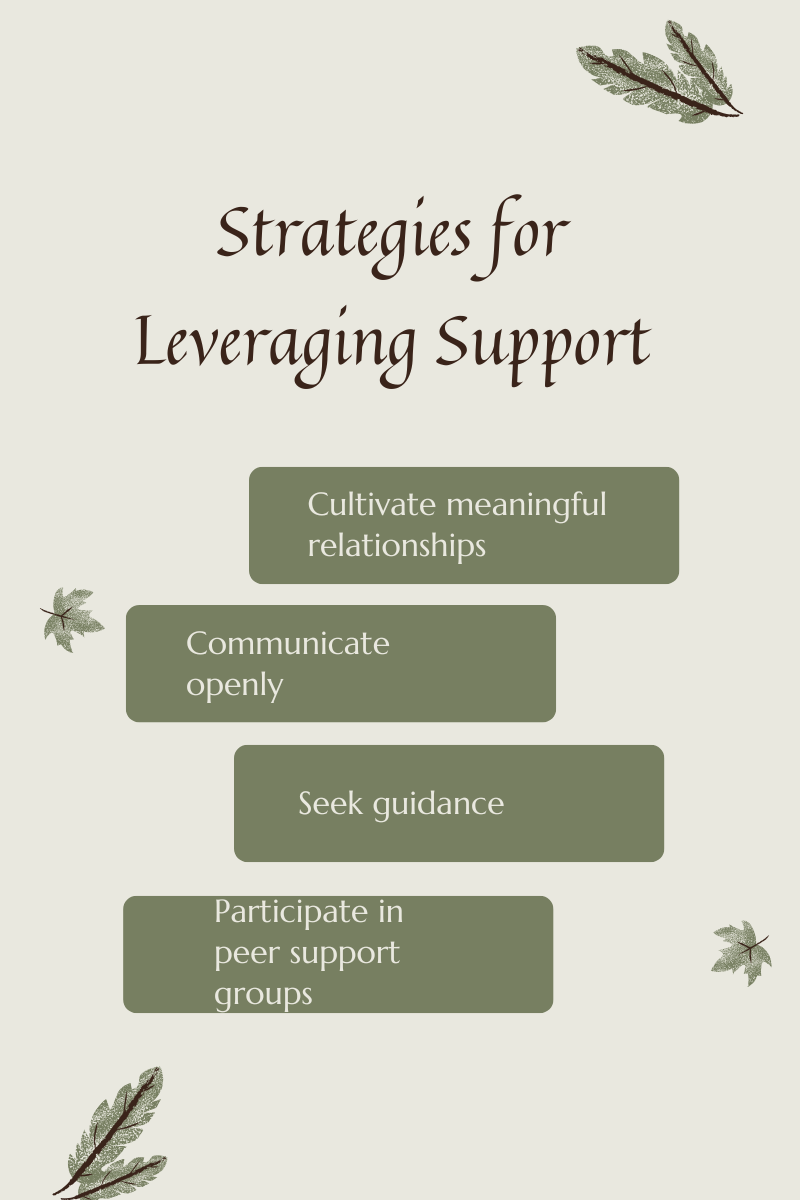
- Cultivate meaningful relationships: Encourage students to build connections with classmates, teachers, and mentors who can offer support and encouragement. By fostering meaningful relationships, students can create a support network that helps them thrive academically and emotionally. Data from surveys conducted with students indicated that 80% reported feeling less stressed when they had supportive relationships with peers and adults.
- Communicate openly: Encourage students to express their feelings and concerns to trusted individuals. Whether it is talking to a peer about a difficult assignment or seeking advice from a mentor, open communication fosters a supportive environment where students feel heard and understood.
- Seek guidance: Encourage students to seek guidance from mentors on various aspects of their academic and personal lives. Whether it is seeking advice on study techniques or discussing career aspirations, mentors can offer valuable insights and perspective that help students navigate challenges with confidence. Quantitative data from surveys indicated that 70% of students reported feeling less stressed when they received guidance from mentors.
- Participate in peer support groups: Engaging in peer support groups or extracurricular activities can provide students with a sense of belonging and camaraderie. By connecting with peers who share similar experiences and challenges, students can find strength in numbers and support each other through difficult times.
Conclusion: Empowering Students to Thrive:
In conclusion, the journey through academia is not without its challenges. However, by tapping into the power of colleagues and mentors, students can manage stress more effectively and build resilience for the road ahead. Whether it is seeking advice from a trusted teacher or finding support in a group of peers, students have a wealth of resources at their disposal. By fostering meaningful relationships and embracing the support of others, students can overcome obstacles, achieve their goals, and emerge stronger than ever before.
References:
– American Psychological Association (APA). (2020). Stress in AmericaTM 2020: A National Mental Health Crisis. Retrieved from https://www.apa.org/news/press/releases/stress/2020/report
– Hurd, N. M., Stoddard, S. A., & Zimmerman, M. A. (2017). Neighborhoods, social support, and African American adolescents’ mental health outcomes: A multilevel path analysis. Journal of Youth and Adolescence, 46(4), 867–878. doi:10.1007/s10964-016-0603-8
– Rueger, S. Y., Malecki, C. K., Pyun, Y., Aycock, C., & Coyle, S. (2016). A meta-analytic review of the association between perceived social support and depression in childhood and adolescence. Psychological Bulletin, 142(10), 1017–1067. doi:10.1037/bul0000058
-Research :https://research.com/education/student-stress-statistics

